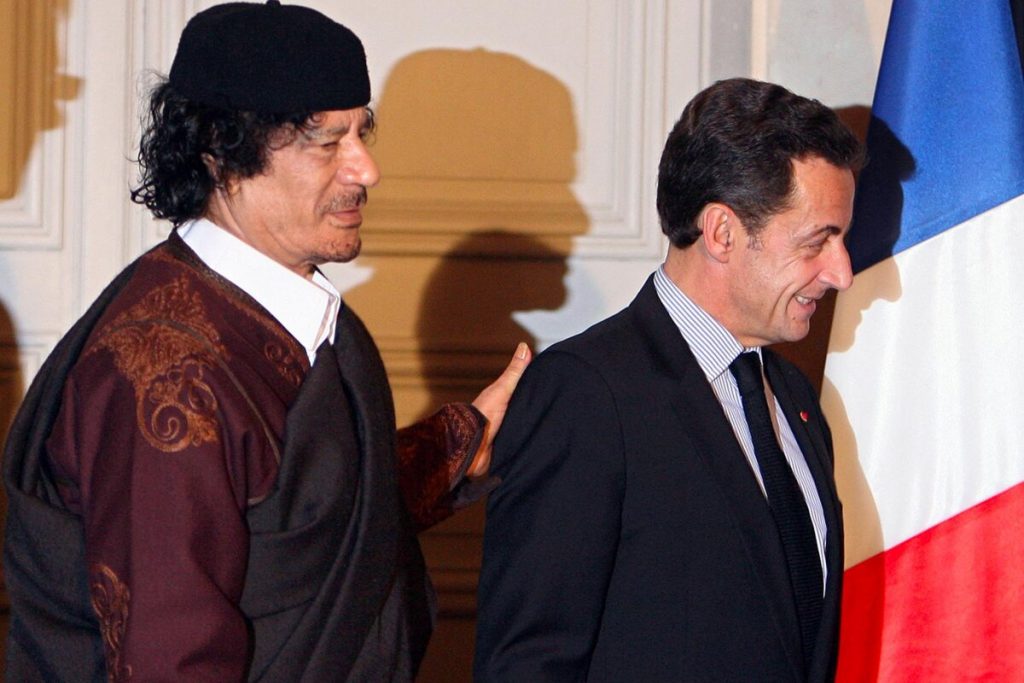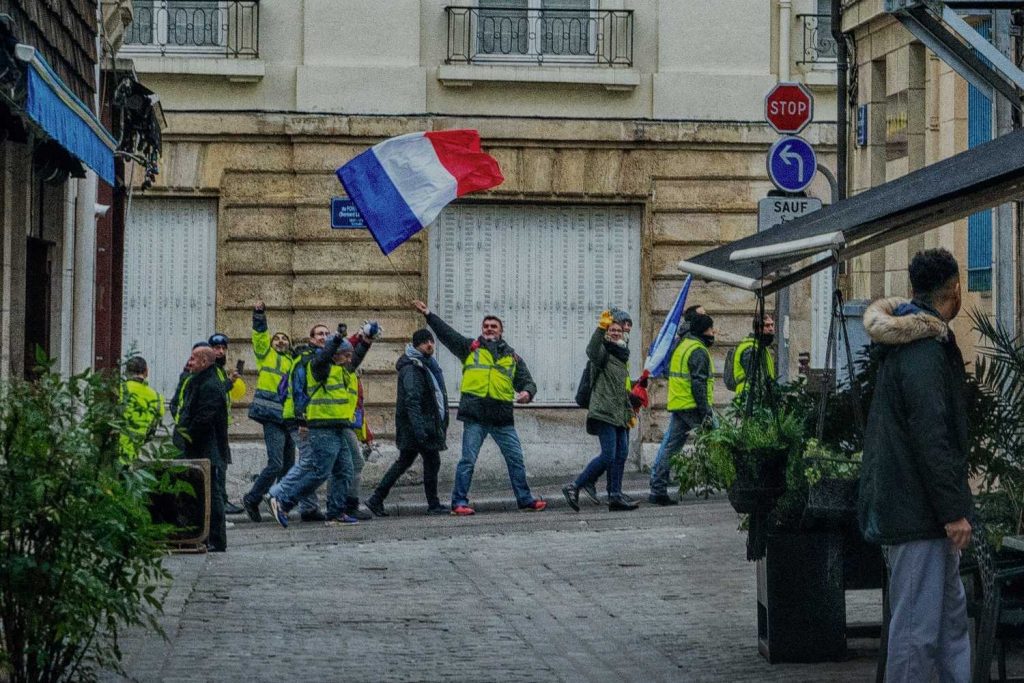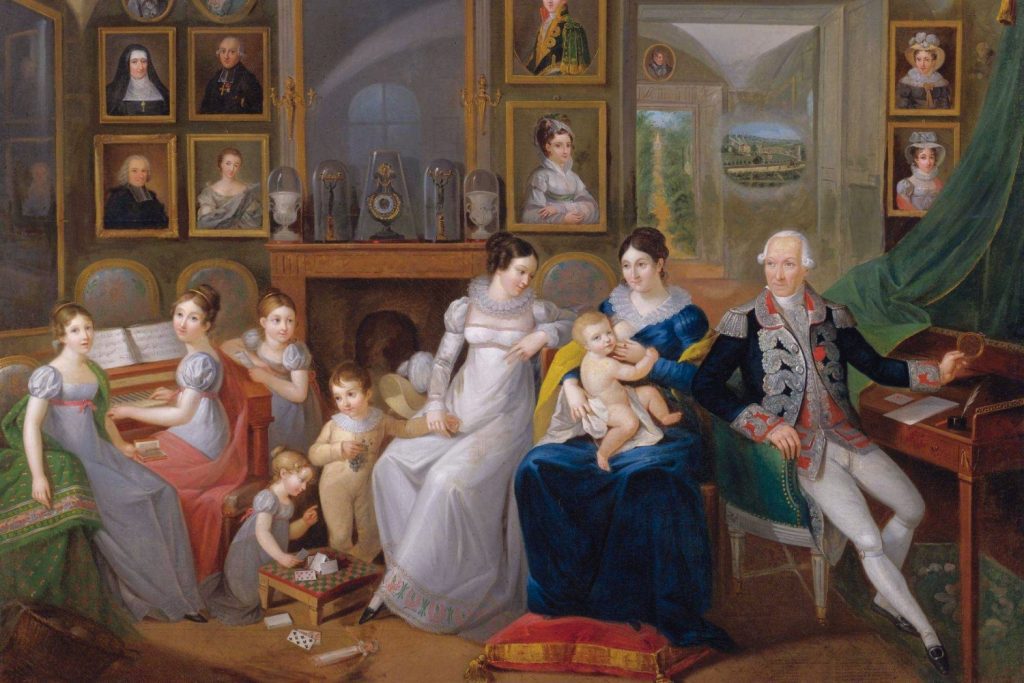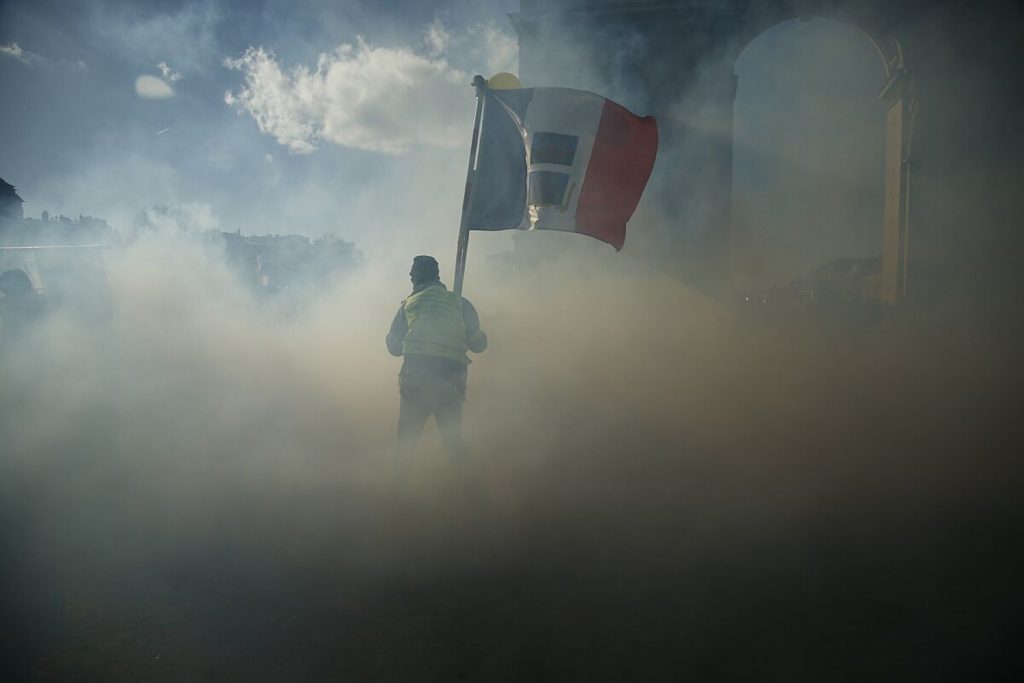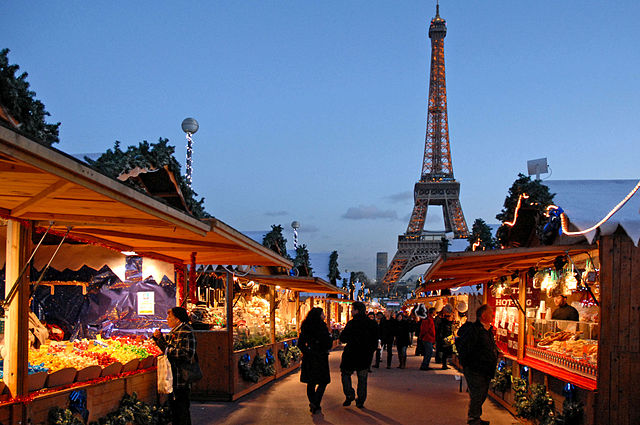
Our Favorite Things to Do in Paris for the Holidays!
Paris in the winter is dark, cold, and can be isolating. However, especially around Christmas, the magic can still be found. Joy can be found with family, at Christmas markets, light displays, and community events. In the most recent episode of Parentalité, a show dedicated to people raising children in France, Joelle Benoliol, Rachelle Chapman and producer ARBL Murray discuss the little ways that you can find this magic and joy. With recommendations for events and places, as well as a magical gift guide, this episode tells you everything you need to know about finding parisian christmas magic with your little ones – or alone!
Christmas markets and villages
The most obvious activity that kids and adults can enjoy simultaneously is the Christmas markets and villages, and Paris has a plentiful amount. Whether you want to marvel at the lights and decorations, buy some Christmas presents, or get jolly on mulled wine, these markets are enjoyable for everyone.
- Vivani park (next to Notre dame) – More discrete charm, gifts, dried fruit, and food.
- Tuileries- Have ice skating, a ferris wheel, and tons of special French foods like Raclette
- Hotel de Ville-Oysters and gift stalls
- Our Favorite La Vilette (the newest village), running until December 28th features wooden chalet stalls, concerts, and creative workshops for children, ice skating and a Raclette restaurant.
- Christmas Tea from Mariage Freres – This isn’t a Christmas village or even a Christmas store but it’s an old fashioned tea house with an incredible service that makes parents and kids feel special.
Ice skating!
- Galleries Lafayette: You can skate in the sky at Galleries Lafayette, with an ice rink on the rooftop of this grand building, although the ice is not real.
- Grand Palais has a beautiful rink made of real ice, adorned with beautiful light displays and art. It is 25 euros per person, but it is well worth it!
- Vincennes also has a rink made of real ice, to skate around next to the beautiful forest for an authentic Christmassy feel.
Ateliers for kids and teens
If your children are a little more mature, or maybe just cultured in art and literature, there are plenty of art exhibitions, ateliers and activities to keep them happy.
- MAIF Social Club is a cultural space in Le Marais, with exhibitions and amazing ateliers for kids. For example, Monsters et Creatures abyssales, running until the 11 July next year, allows you to create a deep-sea creature, inspired by the horse shoe crab which you can watch move on its own due to its structure.
- The hunting and nature museum is recommended for kids who like animals and nature. Built in the 1960s, housed in a beautiful renaissance building, this museum explores artists’ relationship to nature.
- Musee Rodin is also a great place to take kids, with not only the majestic statues in the garden but interesting ateliers for children.
- Lafayette anticipations has art and music workshops for kids every weekend. Le petit cordon blue, the famous cooking school gives special French baking workshops for kids of all ages.
- Red Balloon bookstore has story time for young children and a “Banned Book Club” for slightly older kids
- Fragonard perfume has perfume making workshops for kids as long as their is a parent present.
Theater
- Theatre Essaion have some great shows specifically for young audiences, and there are some fantastic christmas shows on until mid january: Under The Christmas Tree, inspired by the nutcracker, The Christmas Train, Santa’s Sleigh, Charlotte and the Santa Claus Suit and Merry Christmas, Rotten Dog!
- The Theatre des Marionettes Du Luxembourg also put on traditional Parisian puppet shows, captivating young audiences.
Street Art
The space invader mission is a great walk around Paris. Famous street artist Space Invader has put special characters up in Paris and all around the world for years. Now there is an App that heps you track and count the space invaders you find.
Swimming (Yes even in winter)
- Piscine de Pointoise is an art deco style pool in the latin quarter
- Piscine Emile Anthoine has a gorgeous view of the Tour de Eiffel
- Piscine Josephine Baker in the 13th is an outside pool with gorgeous sunset views over the seine.
Forest walks near Paris
Sometimes Paris gets too overwhelming, especially with children, and all you want is to stroll through a forest, not seeing another person for miles.
- Fontainebleau is a 40 minute RER ride away from Paris with a castle and a wild forest great for mushroom hunting.
- Saint-Germain-en-Laye also has a beautiful Château and forest, perfect for a more mild winter day.
For more information and to hear some wonderful stories about each of these places, listen to the full episode on Spotify, Apple Podcasts and the World Radio Paris website.
